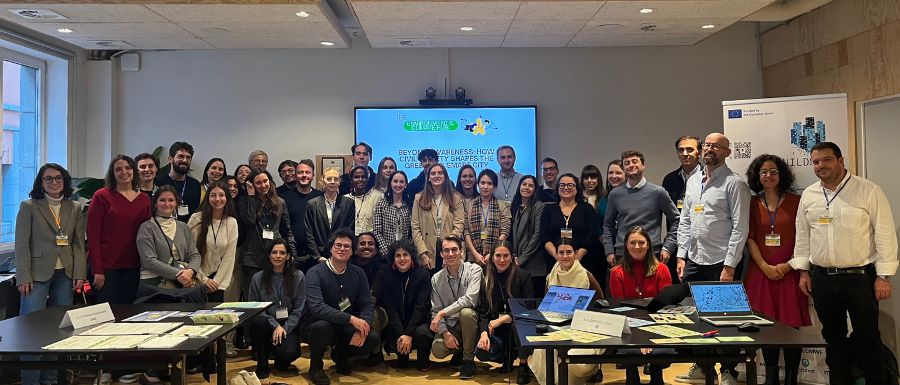On Thursday, 23 October 2025, the final Environment and Climate Hub Event of the year took place in Brussels, bringing together over 40 participants from civil society organisations, local authorities, universities, and SMEs for an engaging discussion on shaping greener and smarter cities in Europe. The event, titled “Beyond Awareness: How Civil Society Shapes the Green and Smart City”, offered a rich exchange of ideas, initiatives, and tools designed to support local communities in the green transition.
The first session featured presentations from projects and organisations actively working to make cities more sustainable through citizen engagement. Moderated by Valeria Fantini, Environment & Climate Hub Coordinator at ALDA, the session kicked off with Serena Lisai from ACR+, who set the scene by presenting the organisation’s mission and portfolio of initiatives aimed at fostering civic engagement in the circular economy. Serena highlighted how cities can achieve a just transition by implementing circular economy principles, improving public procurement practices, promoting soil health, and strengthening citizen participation in sustainability projects. She also emphasized the role of local and regional authorities in creating collaborative ecosystems for urban sustainability, including initiatives in food systems, industrial symbiosis in construction, and behavior change programs.
Following Serena, Carla Rodríguez Alonso from CARTIF presented the BUILDSPACE project, which develops digital services to support cities in planning energy-efficient buildings and climate resilience strategies. Carla showcased how satellite data, digital twins, and co-creation processes with pilot cities enable better decision-making on urban heat, flood resilience, and climate-adaptive building retrofits. The presentation showed the interactive BUILDSPACE tools, enabling participants to explore practical applications for their own urban contexts.
Rita Martino from ALDA+ introduced GreenScape CE, a project integrating nature-based solutions (NbS) into urban infrastructure. Rita shared insights from hackathons conducted in five pilot cities (Zagreb, Warsaw, Szeged, Ptuj, and Milan), which fostered citizen-led ideas for greening urban areas. She also presented key project outputs, including a NbS Handbook, a multi-stakeholder engagement roadmap, and a DIY Guide to Green Up/Cool Down Your Home, designed to help local authorities and communities implement sustainable solutions.
Following the presentations, participants engaged in small-group exercise to discuss how the ideas and tools presented could be adapted and applied in their local contexts. The interactive activities emphasised the role of citizen engagement in the urban green transition, demonstrating how collaboration between communities, local authorities, and organisations can drive meaningful change and a real impact towards the green transition.
The event also featured a Marketplace of Initiatives, allowing participants to explore BUILDSPACE tools, learn more about GreenScape CE and ACR+, discover projects from Energy Cities, and engage with the Environment and Climate Hub initiatives. The Hub team and the ALDA Development Department were present to share insights on opportunities for collaboration across the Hub priorities and transversal topics. The day concluded with a networking lunch, offering attendees the chance to exchange experiences and create new connections.
ALDA Members Session: Fostering Collaboration for the future
After the public Hub event, ALDA members convened with the Hub team present at the Brussels office to follow up on the Hub Event online session held on 29 September 2025. The informal members’ session focused on identifying concrete ways to strengthen connections, collaboration, and joint initiatives within the Hub.
Key insights from the session highlighted several connections on topics of interest, including ecofeminism, energy, and sustainable food, underlining the importance of connecting these areas with citizen empowerment and the inclusion of underrepresented groups. Members shared their ongoing activities, ranging from circular economy initiatives and sustainable building design to soil health projects and citizen behavior programs. Advocacy efforts, particularly related to funding priorities and broader European initiatives, were also discussed as crucial levers for local impact.
The session emphasised the intersection of democracy and climate action, with a focus on the need to focus more on strengthening democracy for inclusive and practical collaboration at the local level. Members expressed strong interest in engaging in in-person workshops and training sessions, contributing to joint projects on shared priorities, and exchanging resources through the Hub’s newsletter to strengthen collective action and impact.
The discussion highlighted opportunities for co-creation of practical initiatives, including: joint projects on circular economy and renewable energy, pilot activities on sustainable food systems and urban greening, and collaborative training and capacity-building programs.
The Environment and Climate Hub and its members leave Brussels inspired, ready to co-create projects, share knowledge, and deepen partnerships that drive the green transition at local and regional levels.
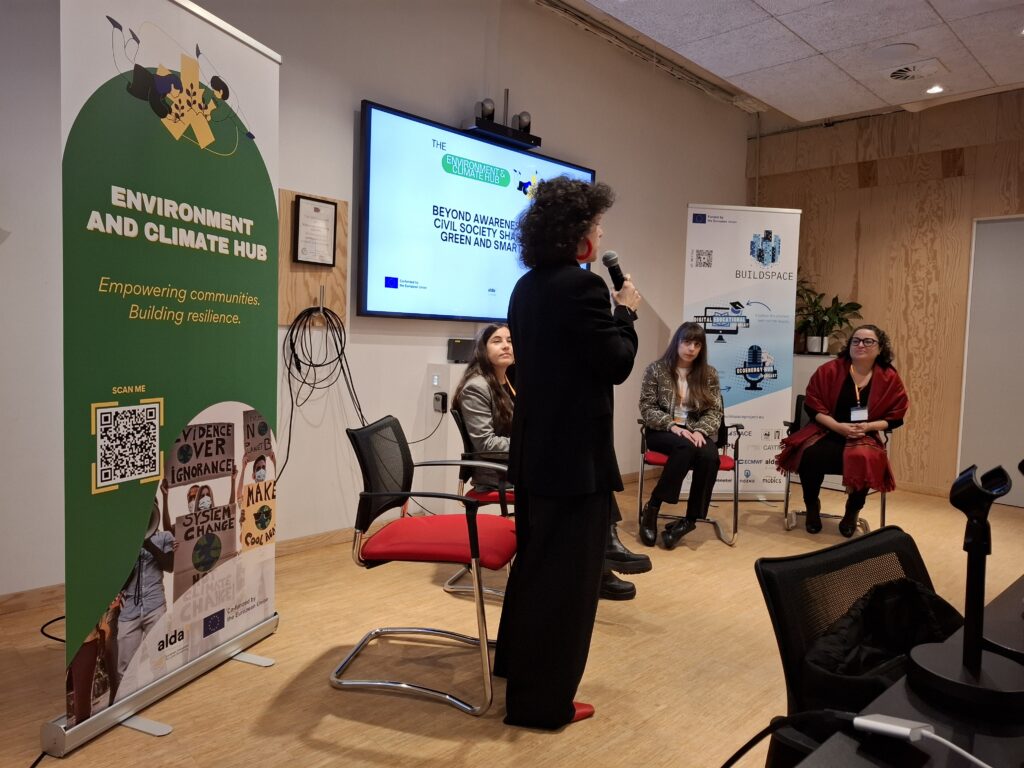
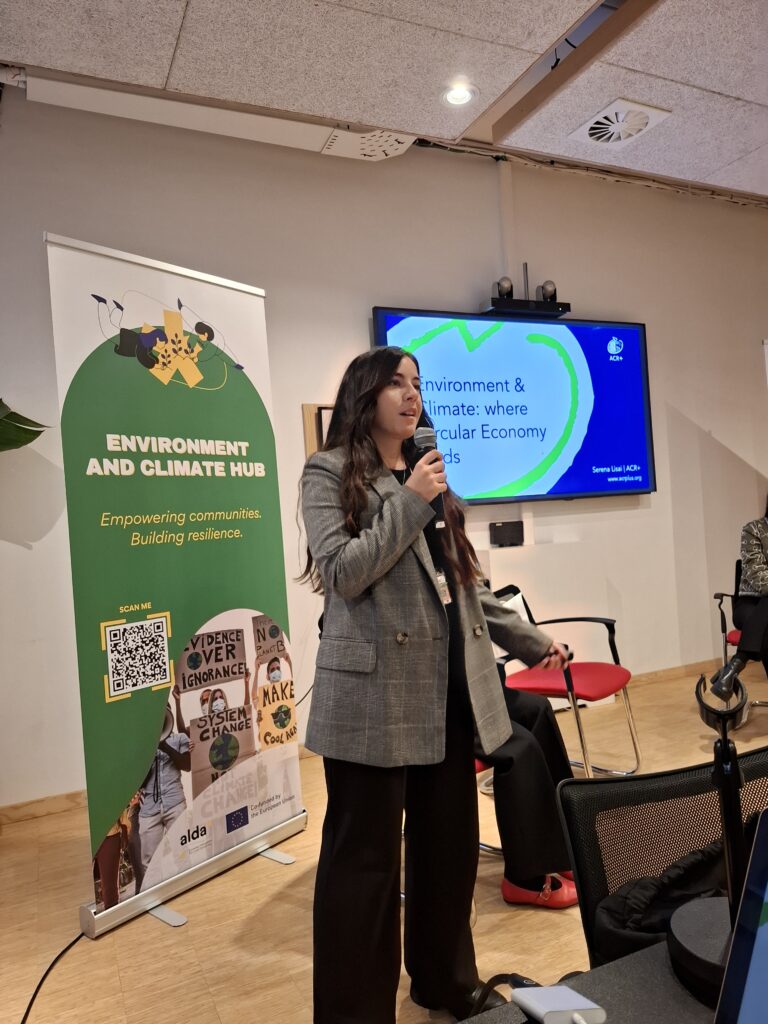
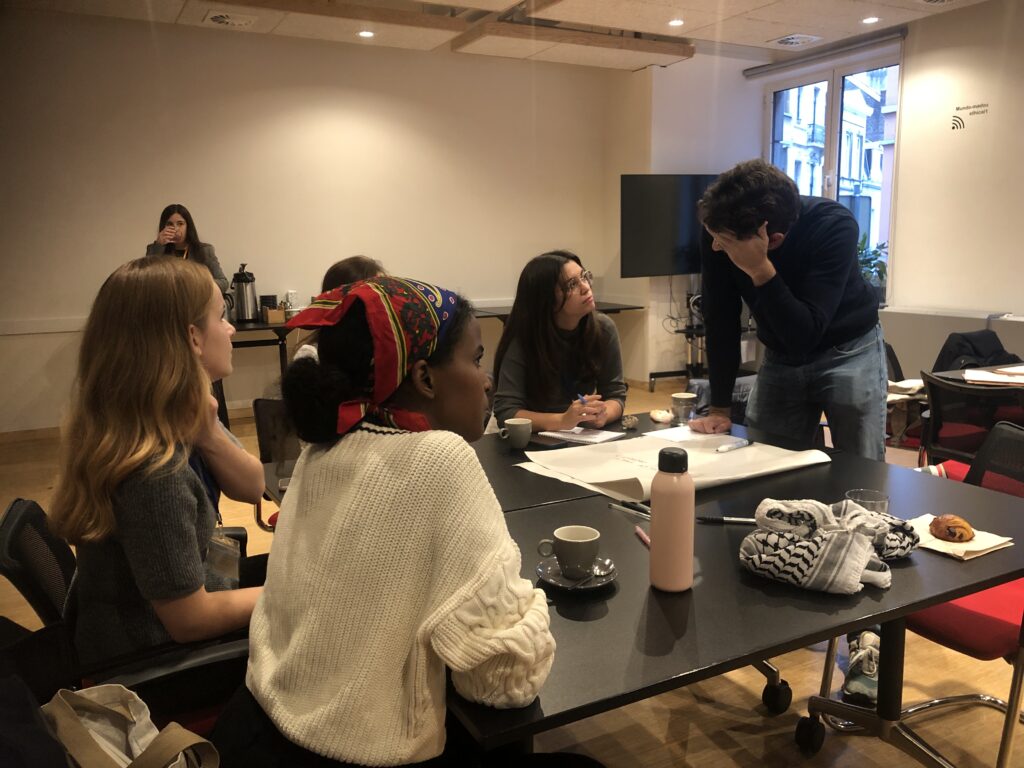
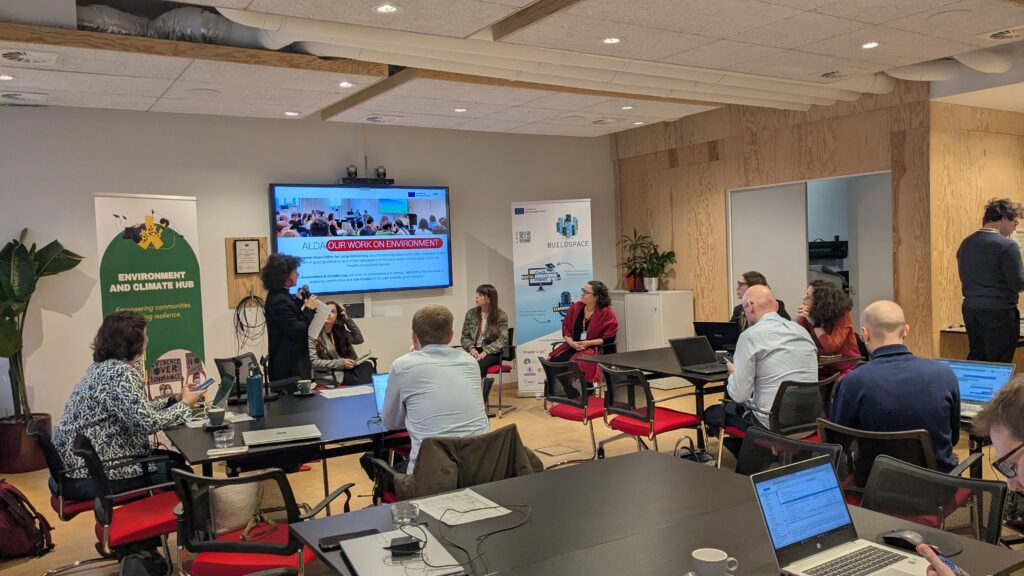
The Environment and Climate Hub event “Beyond Awareness” demonstrated the power of civil society in shaping greener, smarter, and more inclusive cities. By combining innovative tools, citizen engagement, and strong collaboration between civil society and local authorities, the Hub continues to foster sustainable urban transformation across Europe. By listening to its members and providing the tools they need, ALDA’s Environment & Climate Hub is building a
